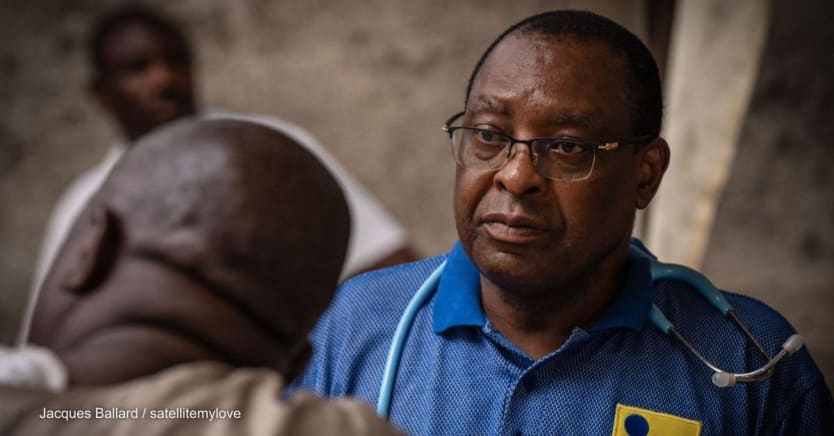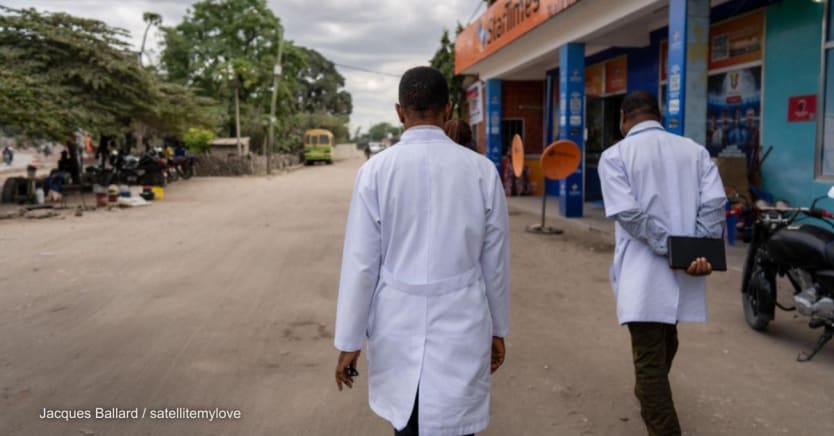
Threats to global health care, particularly in low- and middle-income countries, are at unprecedented levels. Shifting demographics, escalating social conflicts, economic uncertainties and environmental impacts on health continue to strain already fragile health care ecosystems.
The health care challenges facing society are becoming increasingly complex. The global population is expected to increase to 8.5 billion in 2030, and it is currently estimated that over half of the world’s population lacks access to essential health services. Moreover, the growing burden of noncommunicable diseases is no longer a problem associated with high-income countries. According to the World Health Organization, each year 17 million people die from an NCD before the age of 70, and 86% of those premature deaths occur in LMICs.
To create sustainable change and progress toward more equitable health care systems requires a major evolution in the way public and private sectors work together to support and finance scalable solutions. It is time to go beyond the status quo to preserve the progress that has been made and accelerate our efforts to bridge the health care gap in LMICs.
Thinking holistically to change the health care paradigm
Overcoming the barriers to access and quality health care that persist today cannot be solved by a singular strategy or by a single player. The focus should be on multifaceted initiatives that not only provide accessible medicines, but also support patient education and skills training for health care professionals and community health workers. Investment in local and innovative solutions developed by the private sector is also critical for long-term sustainability.

The needs of vulnerable communities are not one-size-fits-all — there are similarities, but also unique barriers that need to be addressed for long-term impact. Similarly, identifying the right partners and aligning expectations and outcomes is also essential. Clearly defined program outcomes, key performance indicators, and assessment frameworks are critical to evaluating program performance and form a basis to determine potential scalability and replicability of these initiatives. Having a shared value partnership is a cornerstone of long-term success.
We must build partnerships, not just with governments, but also with NGOs and communities — equitable partnerships that will become entrenched, and sustainable programs that communities can own. It’s also about partnering with organizations that are already working in communities and providing them with the support they need to access patients with chronic diseases.
Take for example a new partnership between Sanofi’s Global Health Unit and Save the Children in Yemen, a country in crisis due to a protracted nine-year political conflict. Working together in Yemen’s Taiz governorate, a mountainous region of more than 3.1 million people, this innovative program was co-designed to improve the prevention, identification, and treatment of NCDs such as diabetes. It will directly support over 79,000 children and adults, and will equip government health services to improve capacity, systems, and care for the governorate’s population.
“Nearly 500 million people in the world live with diabetes and almost 80% of these live in low- and middle-income countries such as Yemen. Over 70% go untreated because the health systems are not equipped to respond, and communities are not always aware of how to reduce their own health risks or to prevent or reduce the impact of NCDs. That is why we are very excited to be working in partnership with Sanofi’s Global Health Unit to start to address these damaging but neglected health problems.”
— Save the Children’s Paula Valentine, senior community, social and behavior change adviser, and Andrew Clarke, senior health adviser — resilience, rights and climate, Save the Children, in a 2024 blog post.
The program will focus on increasing skills, awareness, and use of data, taking a practical and informed approach to enable the fragmented health ecosystem to respond to the health crisis in a strategic manner. It also focuses on empowering patients to better manage their own condition and communities to make more informed choices within the many constraints that exist laying the groundwork for long-term impact. Primary Care International will also be involved in the project and will bring valuable skills and experience in developing and delivering training for health workers on NCDs.
This collaboration is one example of many that are being mobilized by Sanofi and other private and public players to address health disparities. Our global health unit has over 40 active or completed capacity-building programs in more than 22 countries, and we continue to learn with each one.
Leveraging private capital to advance innovation and sustainability
Impact investment offers a significant opportunity to continue to catalyze growth and innovation where capital resources are often scarce. It is a complementary and necessary vehicle to strengthen the overall health care ecosystem.
With the influx of capital for impact investing, the opportunities to address health care gaps have never been greater. Investing in inclusive businesses and entrepreneurs pursuing innovative solutions that will support better access to care helps strengthen the overall ecosystem. Impact capital can provide needed funding for the replicability and scalability of programs, which will support sustainable growth.
Equally important to the success of the companies and ventures, is the investment of human capital. Sharing of expertise, mentoring, and coaching are important to the success of these local inclusive businesses. This hands-on approach could accelerate innovation and expansion of the companies and their solutions, progressing to sustainable business models.
While the global health challenges we are facing are daunting, we collectively have the opportunity to move toward the Sustainable Development Goals target for universal health coverage. The elimination of silos and move toward multisectoral partnerships are setting the stage for sustainable health care delivery models in LMICs that can truly change the trajectory on a global scale. But we must act now.
Visit our website to learn more about the work being done by Sanofi's Global Health Unit.
Search for articles
Most Read
- 1
- 2
- 3
- 4
- 5








